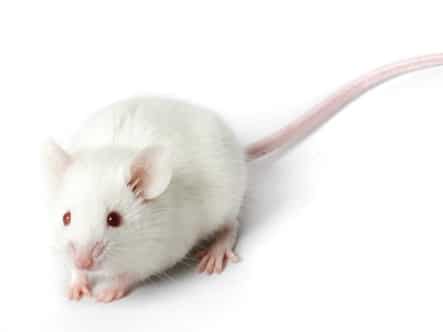
 Could addiction resistant mice mean a breakthrough for human addictions?
Could addiction resistant mice mean a breakthrough for human addictions?
In a surprising result that speaks to the genetic and biochemical roots of addiction, researchers at the University of British Columbia have genetically engineered a mouse that is resistant to cocaine addiction.
Whether it’s alcohol and drugs, gambling, sex or a number of possibilities, addiction has proved to be a difficult puzzle to solve. More than just a craving for certain substances or experiences, addiction is characterized as a compulsive activity, one that pushes a person to keep using despite the presence of harmful consequences. Research has shown that the while the factors contributing to addiction may be both biological and psychosocial in origin, the result is a chemical shift in the brain which motivates the damaging behaviour and makes quitting extremely difficult.
In the interest of understanding the neurochemical bases of addiction, researchers at UBC’s Life Sciences Institute focused on a particular protein called cadherin, necessary for the proper functioning of synapses between brain cells. Without the proper amount of cadherin, cells do not bind together well, synapses are not properly strengthened and learning and memory recall are affected.
Research has shown that people with substance use issues have a more likelihood of genetic mutations connected with cadherin. Thus, in breeding mice to have higher than normal levels of cadherin, the UBC researchers assumed that learning and reward circuits would be reinforced, making addiction more of a factor and cadherin-heavy mice more prone to addiction.
In fact, the opposite occurred. The research team injected their genetically transformed mice with cocaine over a number of days to create what they thought would be an associative dependency, both to the drug and to the particular compartment in their cage where they received the cocaine doses. Normal, non-altered mice were found to almost always head for the compartment in their cage in which the cocaine was given, yet the cadherin-heavy mice spent only half as much time in that compartment, showing that they hadn’t formed a strong positive association with the drug.
“Through genetic engineering, we hard-wired in place the synapses in the reward circuits of these mice,” says graduate student Andrea Globa, a co-lead author of the new study with former graduate student Fergil Mills in a statement. “By preventing the synapses from strengthening, we prevented the mutant mice from ‘learning’ the memory of cocaine, and thus prevented them from becoming addicted.”
How did this result come about? Through analysis of the mice’s brain tissue, the researchers found that the extra cadherin actually bolstered cellular membranes to the point where a particular neurochemical receptor was prevented from passing through the membrane, which in turn affected the ability of neurons to successfully pass on signals — effectively, the added cadherin was preventing pleasurable experiences from “sticking” in the mice’s brains as pleasurable memories.
Does this mean that we might in the future be able to treat addiction by upping the amount of cadherin in a person’s brain? Not really, say Shernaz Bamji, professor in the Department of Cellular and Physiological Sciences at UBC and study co-author.
“For normal learning, we need to be able to both weaken and strengthen synapses,” Dr. Bamji says. “That plasticity allows for the pruning of some neural pathways and the formation of others, enabling the brain to adapt and to learn. Ideally, we would need to find a molecule that blocks formation of a memory of a drug-induced high, while not interfering with the ability to remember important things.”
The study is published in the journal Nature – Neuroscience.
Leave a Reply
You must be logged in to post a comment.



 Share
Share Tweet
Tweet Share
Share




Comment